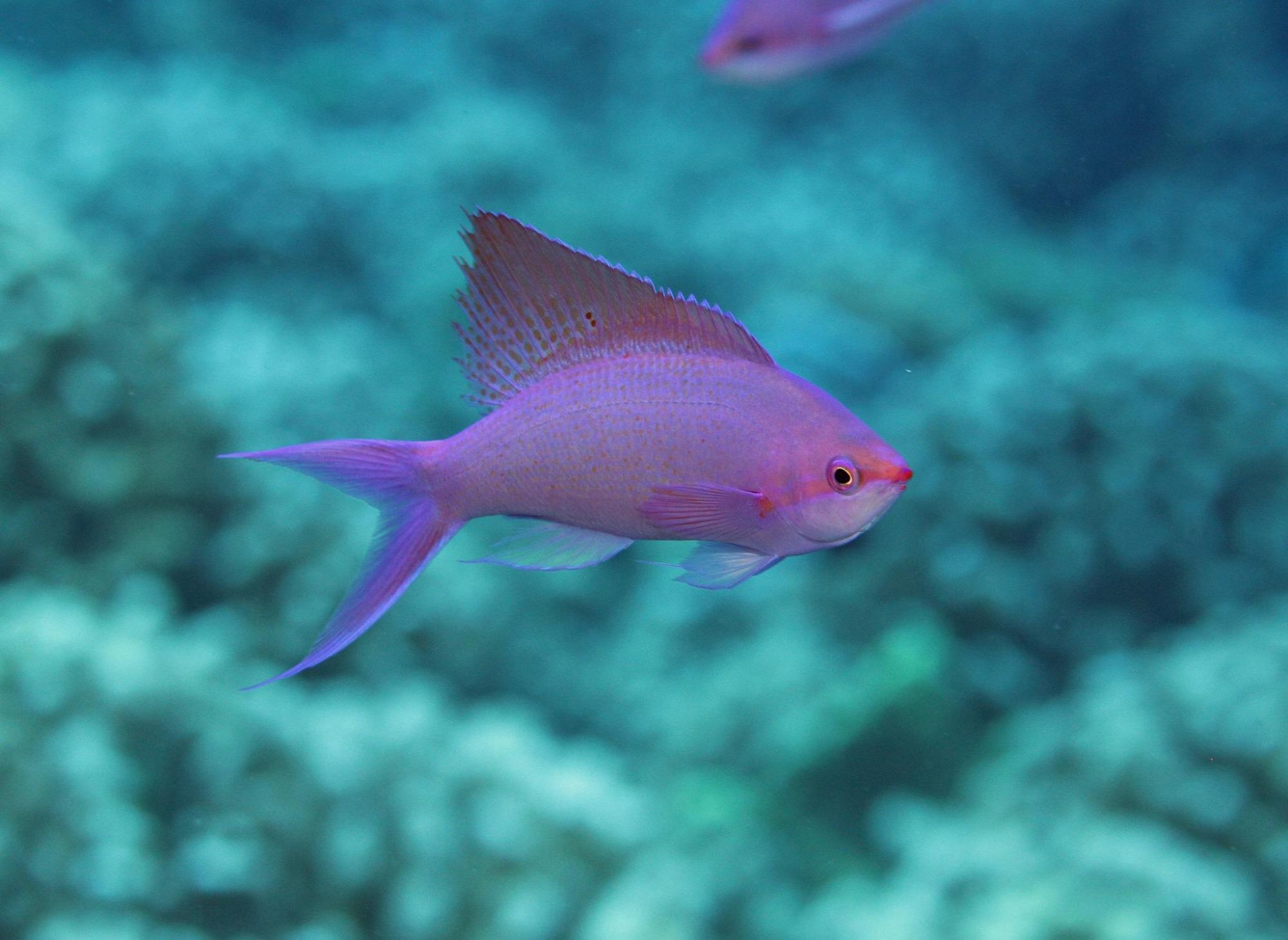Reviewed by Alex SmithApr 5 2022
An international group of scientists, including many from the University of Hawai‘i (UH) at Mānoa, has computed five important ecological processes on over 500 coral reefs globally to comprehend how these processes are linked to one other, what may differentiate the most efficient reefs and what that would influence the management of reef functioning.
 Reef fish in French Polynesia, Moorea. Image Credit: Sergio Floeter.
Reef fish in French Polynesia, Moorea. Image Credit: Sergio Floeter.
Their study, published recently in the journal Nature Ecology and Evolution, shows that five crucial functions carried out by fish communities – the elimination of algae, biomass production, predation, and the cycling of phosphorus and nitrogen — are innately interconnected.
As a result, while the execution of these processes is affected by the community structure of reef fishes on any particular reef, no reef can optimize each of the five processes concurrently.
Coral reefs are frequently labeled as the rainforests of the ocean. They are home to a high variety of species and are highly productive. Climate change and local threats like overfishing have resulted in a drastic reduction in coral reefs around the world, leaving researchers wondering if future generations will still witness healthy, ‘functional’ coral reefs. But what precisely makes a coral reef ‘functional’?
“Imagine a coral reef fish community swirling with small fishes that feed on algae,” explained Nina Schiettekatte, the study lead author, a former doctoral student at the Center for Island Research and Environmental Observatory, and postdoctoral fellow at UH Mānoa’s Hawai‘i Institute of Marine Biology (HIMB).
“This community will be characterized by high algal consumption and high biomass production, but it will have low phosphorus cycling because these species excrete very little phosphorus.”
This denotes that ecological processes on coral reefs around the world are in a fragile balance, where it is difficult to optimize all processes. The scientists acquired this knowledge by gathering data from different fishes and integrating it with a large dataset on fish communities globally.
A Detailed Look Reveals Local Super Heroes
Throughout this project, we collected thousands of fishes across more than 100 species to gain detailed biological information on how they acquire and use energy and nutrients.
Jordan Casey, Assistant Professor, The University of Texas at Austin
This data can then be used in communities to comprehend how fish communities cooperatively move biomass and nutrients via the food web.
“Our work is novel because it quantifies multiple functions for the first time,” Valeriano Parravicini, Professor at EPHE in Perpignan, France stated. “Previously, most researchers have used the biomass of a fish community as a proxy for coral reef functioning but we show that it is critical to look beyond biomass and really disentangle the different components of functioning to understand how reefs work.”
Being aware that no reef can shine in all processes, the scientists examined whether there is a specific set of species that is more essential than others. Astonishingly, they learned that no single species was constantly crucial across its range, but half of all species were essential in at least one site.
This means that there are no global super-hero fish species for ecosystem functioning. But there are many local super heroes.
Sébastien Villéger, Scientist, CNRS (Montpellier, France)
A More Nuanced Management Approach
This work really changes the way we need to think about coral reef conservation,” “Since we cannot maximize all aspects of functioning, we clearly need to develop a more nuanced approach to conserving coral reefs that considers local species, ecosystem dynamics, and stakeholder needs.
Simon Brandl, Assistant Professor, The University of Texas at Austin
As coral reefs are enduring increasingly frequent turbulences, the creation of such local-tailored management targets may become a race against time.
Journal Reference:
Schiettekatte N, M, D., et al. (2022) Biological trade-offs underpin coral reef ecosystem functioning. Nature Ecology and Evolution. doi.org/10.1038/s41559-022-01710-5.